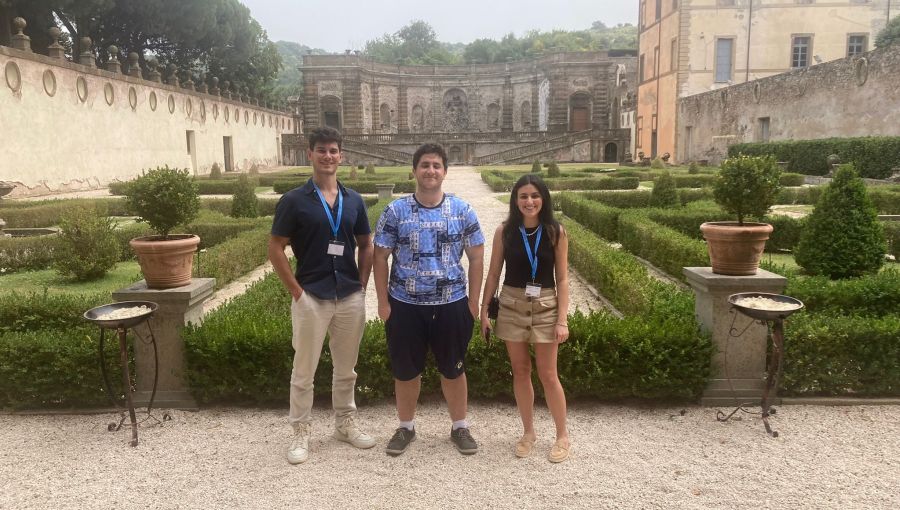From Adam Smith to Venture Capitalism: Flavia Di Mario at JCU
The Department of History and Humanities and the JCU Institute for Entrepreneurship welcomed Flavia Di Mario on March 27th for a lecture titled “The ‘Invisible Hand’ of Economy: from Adam Smith to Venture Capitalism.” The audience was composed of students from Professor Silvia Pulino’s MGT 498 (Strategic Management) class and Professor Brunella Antomarini’s PH 240 (Modern Philosophy) class. The focus of the presentation was the relationship between philosophy, economics, and politics as first described by Adam Smith in his work The Wealth of Nations (1776), and subsequently developed in the forms of liberalism and neo-liberalism.
Flavia Di Mario holds a BA in Political Science from LUISS University, Rome and an MBA from Link Campus University. She has taught at Link Campus University and Sole24Ore Business School and is now pursuing her PhD in Political Economy, Industrial Relations at Middlesex University (UK). She is a consultant in economic development and labor relations for public and educational Institutions, and social organizations on a national and international level.
Though Adam Smith states that the invisible hand of economy automatically provides for a distribution of wealth over time, he admits that employers in the economic system are always and everywhere in a sort of a tacit, but unflinching agreement, while their main agenda is not to raise the wages of labor above their actual rate. Di Mario noted that it is the ”master,” not the “workman” who usually wins and she proved her point by reading the excerpt from The Wealth of Nations: “The masters, being fewer in number, can combine much more easily; and the law, besides, authorizes, or at least does not prohibit their combinations, while it prohibits those of the workmen.”
While Smith’s magnum opus states that “all men are created equal,” some workers are deprived of their rights. Contrarily to Smith, this inequality creates wealth concentration and it is what makes nations poor.
Di Mario continued by discussing Smith’s view on class mobility and neoliberalism. Smith lived during the industrial revolution when class mobility was possible in English society. But Di Mario affirmed that in the long run that there is no correlation between the growth of the financial sector and the overall economy. 1% of the richest people in the world own 20% of all world’s wealth.
The financialization of the market marks a shift from the communal participation of material production. The capitalist rentiers escape material production focusing on finance instead. The lower classes are still constrained into a material production system that they accept by way of what she calls the ‘metaphysics’ of capitalism, that is, a way to consider wealth as a natural goal. And that is how, according to Di Mario, poor and working people reject the revolution today.
Students asked whether the market should be free or if the government should intervene. According to Di Mario, over the past 30 years markets have been largely unregulated. She believes in a basic assistance from the government. A modern state should limit the wild financialization of the market and should try to ensure the well-being of its citizens by any means.
To conclude the discussion, Professor Pulino addressed the topic of social entrepreneurship. Di Mario believes in the positive effect that entrepreneurs have on society, even though sometimes the conflict between profit and social good prevails. The real question is – what should be righteously called “social”? This concept needs to be addressed in terms of a redistribution of wealth.






